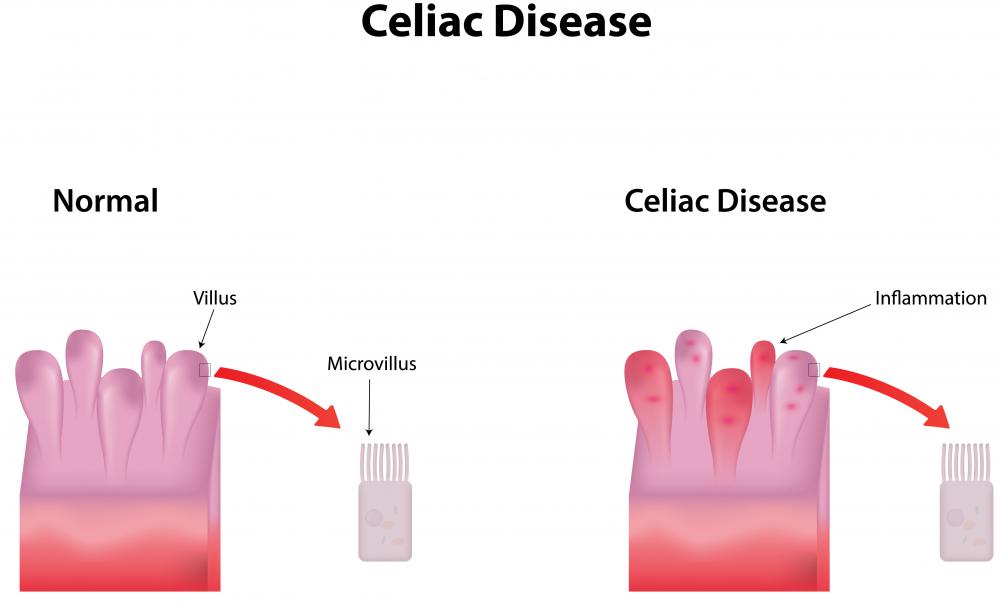At WiseGEEK, we're committed to delivering accurate, trustworthy information. Our expert-authored content is rigorously fact-checked and sourced from credible authorities. Discover how we uphold the highest standards in providing you with reliable knowledge.
Should I Be Concerned about Gluten in Coffee?
Anyone who is sensitive to gluten, such as those who have been diagnosed with celiac disease or gluten intolerance, should be concerned about gluten in coffee. Although coffee beans in their pure form are naturally gluten-free, many additives contained in instant coffee mixes, flavored coffees, or coffee shop concoctions may contain gluten. To be safest, it’s best to buy coffee beans specifically labeled gluten-free and grind them at home or purchase only coffee products that are labeled gluten-free.
Celiac disease is a condition in which the consumption of foods containing gluten causes damage to the intestinal wall. There is no cure, but celiac disease can be treated by complete avoidance of all foods that contain gluten, like wheat, barley, or rye. Gluten in coffee mixes is usually found in ingredients derived from wheat or barley that may not be obvious at first glance. Ingredients like caramel color, spices, or any kind of starch may contain gluten.

The best way to determine if there is gluten in coffee is to call the manufacturer of the coffee mix or product. Many companies provide their customer service representatives with nutritional information for customers with medical concerns or allergies. They may also be able to relay whether there is any danger of cross-contamination with gluten in coffee processing. Some brands of coffee may boast that they are gluten-free on their label.

Many coffee shop chains maintain nutritional and allergen information on their websites or in the store. Workers may or may not be educated about providing information about gluten in coffee products. The safest way to order coffee at restaurants or cafes is to check the company website beforehand, or when in doubt, order plain coffee with only milk or sugar.
As the cost of coffee is increasing, some coffee manufacturers add other non-coffee ingredients as fillers. Sometimes these fillers may include cereal grains, which could be a concern for gluten-intolerant individuals. These may not be labeled, especially if the coffee is manufactured in a country that doesn’t require labeling by law.
Many people with celiac disease or gluten intolerance experience symptoms such as bloating, diarrhea, or stomach pains when they drink coffee, even when gluten is not present in coffee. Unfortunately, it may be difficult to distinguish symptoms of gluten in coffee with sensitivity to coffee itself. Coffee is a common cause of gastrointestinal upset in some people. It’s possible that someone with celiac disease who has recently adopted a gluten-free lifestyle may temporarily experience sensitivity to certain foods, like coffee, while the intestinal tract is healing from the harmful effects of having consumed gluten.
AS FEATURED ON:
AS FEATURED ON:












Discuss this Article
Post your comments